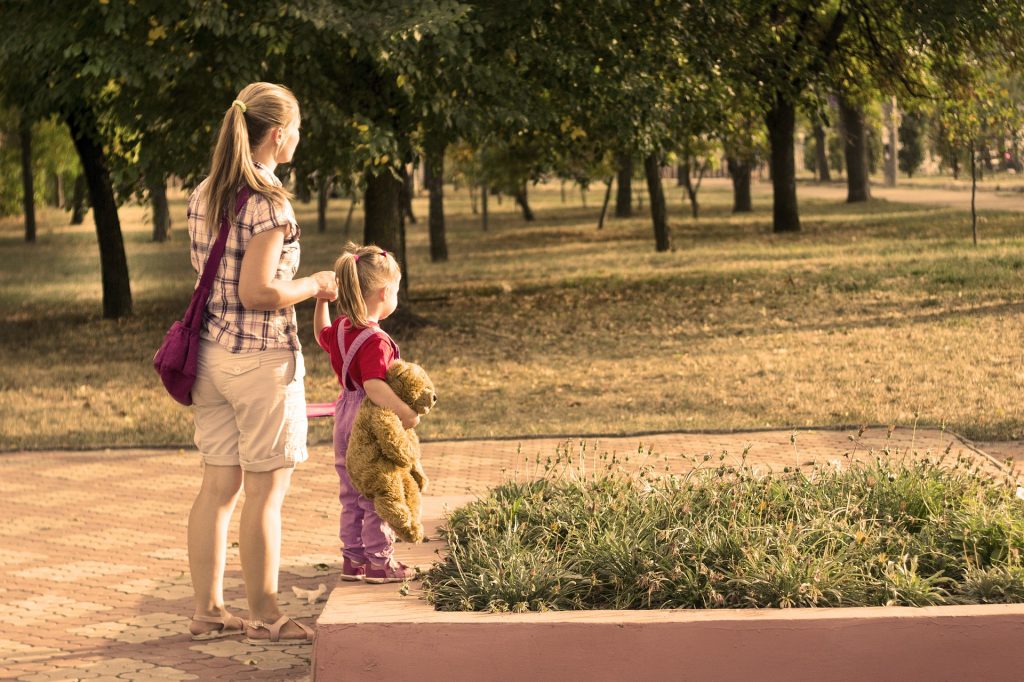Excerpt from 21 Days of Parenting Mindfully: Your Guide to Raising a Conscious Child by Lorrie Jones, p. 108
When we become parents, we bring issues from our past that will influence the way we lead and parent our child. Experiences that have not been fully dealt with or that remain in our memory, on some level, determine to a large extent our behavior with our children. Past issues can become a trigger as we interact with our children and cause reactivity rather than calm and centered responsiveness. Sometimes our reactions are intense, troubled, and over the top. They may impair our ability to think clearly and remain compassionate and flexible as we care for our children. How many of you have looked back on an incident and felt guilt or shame knowing you weren’t your ‘best self’? I know I have such experiences as I look back. The bottom line is: issues that have their origin in our past directly affect the way we experience our children and interact with them – whether we are aware of our past or not. Leftover issues or unresolved trauma and loss from our early years are significant and greatly impact how we treat our children.
An example from my own life while raising my daughter remains clear in my memory. I had been raised in a rather austere environment with many rules that seemed unfair to me as a young person. One issue was my curfew time: I had a curfew that was much earlier than my high school friends. I was continually the one who couldn’t go to the movie or stay at the dance because of my curfew. I felt constantly frustrated and angry. I vowed to give my children reasonable curfews – if any at all. When my daughter was in high school she came to me one day and said: “Mom, can I please have a curfew? All my friends have one and I don’t.” I had gone too far in my parenting, leaving my daughter’s timing up to her (in an effort to let her learn from natural consequences and determine her own best time). She sensed her need for boundaries from her parents and asked for one. We often laugh as we look back together, yet the lesson was clear: I overshot my mark. And though I had the best of intentions, I was neglectful in giving her a family boundary. Since that time, I have learned a great deal about the need for structure and limits in life – especially with children.
If we have leftover issues that are unresolved, it is critical that we take the time to pause often and be aware of our emotional responses to our children. In short: if we understand ourselves and make meaning of our past (as well as we are able to), we give our children the chance to develop their own personal sense of aliveness and the freedom to experience their own emotional worlds without feeling limits or fear. Sometimes this is a difficult task, especially if there has been pain, disappointment, or sadness in our past. Fortunately, there are many published and online resources available to support us in our journey of looking back and making peace with our past. It may take time, but time well spent in both the well-being of our own selves and the well-being of our children.
The foundation a parent creates for their child – the voice you provide your child with which will last their entire lifetime – are the building blocks to the person they will be and become. Our job is to guide our children and leave them with the knowledge that they are loved, loveable and belong.
Did your own childhood do that for you?
- What were some of the messages you received as a child? (About your intelligence, abilities, looks, value?)
- What influence, if any, do you think these messages have on your parenting today?
- In what ways do you feel your parents had a positive impact on you—that you would like to do with your own child?
- Was there anything about your parents’ approach to raising you that you don’t want to recreate with your child?
- Are there any significant events or experiences in your childhood that had an impact on you and that now may be influencing your parenting? (For example: the loss of a loved one, parental separation or divorce, significant tension between parents, financial insecurity, parental mental health issues, or parental substance abuse).
Reflecting on these questions can stir up strong feelings. Consider discussing them with your partner or a trusted friend. Consulting a parenting specialist can also be extremely helpful in “unpacking” the past to benefit your child’s future.
By making conscious decisions about what practices you want to repeat, and not repeat, with your own children, you have the potential to positively impact your family legacy for generations to come. Each day, little by little, you can build a legacy of emotional health and resiliency for your children to inherit.
For another perspective, I encourage you to read this highly insightful article by Rachel Macy Stafford, Hands-Free Mama, They Don’t Need Tears: Raising Resilient Kids Who Solve Problems that Make Us Cry.

Leave a Reply